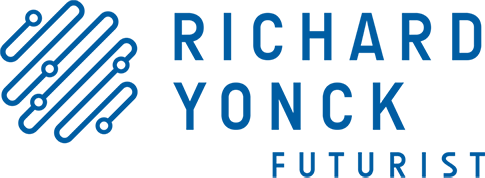Science, abstraction and magic
I was in a pub a while back having a pint with a British friend when the topic turned briefly to computing. “What I don’t understand,” he said. “Is how programmers make something from nothing?”
I thought for a moment, then started briefly explaining about levels of abstraction, starting from transistors through machine language to higher-level languages. I figured this might show him how by controlling certain electrical properties at the micro-scale we’re able to create a panoply of macro-effects. Well, this obviously wasn’t the right approach since he began to glaze over after only a few minutes. To be fair, we were a few pints in, but he had asked after all. He was a university grad, so I’d assumed this was the kind of answer he’d been looking for. Thinking back, I’m not entirely sure he wasn’t winding me up (pulling my leg) – a favorite English pastime – but I suspect that wasn’t the case. I think he actually considered programming to involve the creation of something from nothing.
This got me thinking about the oft-quoted Arthur C. Clarke observation that “any sufficiently advanced technology is indistinguishable from magic.” It’s been written about frequently enough, but I’ve tended to think of it in terms of eras and generations. The space probes, imaging technologies and wireless communications of today would seem like magic to a citizen of the 19th Century. The locomotives, magic lanterns and telegraphs of the 19th Century would probably be quite magical to someone from the 15th Century Renaissance. Likewise for the engines of da Vinci, perspective paintings and printing presses of that era, if you could show them to someone of a sufficiently earlier time.
But just as the rate of technological advance is increasing, so are the time frames of these examples diminishing. I don’t think it’s necessarily a direct inverse relationship, but it does look like a fairly solid trend. The fact is that a growing proportion of our technology is moving beyond the realm of common knowledge.
When we flick a switch to turn on a light, we’re using an interface which separates us from the more complex processes involved, relatively speaking. The processes are being abstracted in order to make them more accessible. I think it’s fair to say that most people don’t understand the fundamental principles that cause a light bulb to glow when they flick that switch. This is even more the case with more advanced devices. As devices become increasingly sophisticated, there will have to be more levels of abstraction created between what they do and how we use them, between what we perceive as cause and effect, in order for us to be able to use them. Because of this, the world is going to appear to become ever more “magical”.
Consider a lighting system. We can already walk into some homes and activate the lights by our motion or with a verbal command. In a few years, we’ll be able to operate much more complex systems using simple gestures or eye tracking. And maybe a bit more than a decade beyond that by just thinking about it. The simple interfaces will be there, the underlying technology will be there, but the conceptual distance between them will be so great that for many of us our understanding of the processes will become distorted.
This creates the potential for some very negative consequences. A number of people including futurologist Ian Pearson (see my recent interview with him in FutureNovo) have suggested that we may be moving toward a technological dark age where among other things, superstitions will arise around certain devices and processes because of just such a lack of understanding. The ramifications of such a disconnect are alarming since it creates an environment begging for backlash and exploitation. A greater gulf will occur between those with very specialized, esoteric knowledge and the end-users who reap the benefits. If only a rare few understand how to build, operate or repair a technology, all kinds of abuse becomes possible. Finally, should something happen to those few, we could easily find ourselves with no access to the technology at all.
And then we’ll really have to build something out of nothing.
